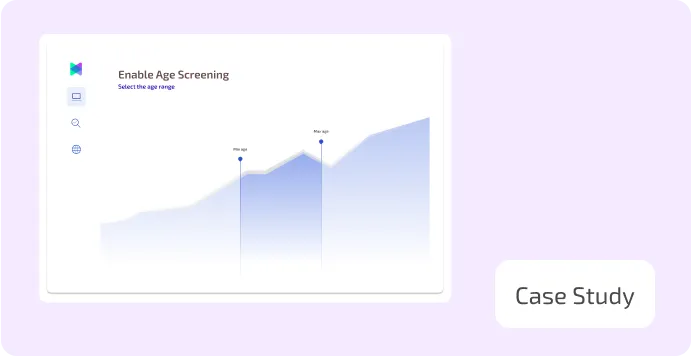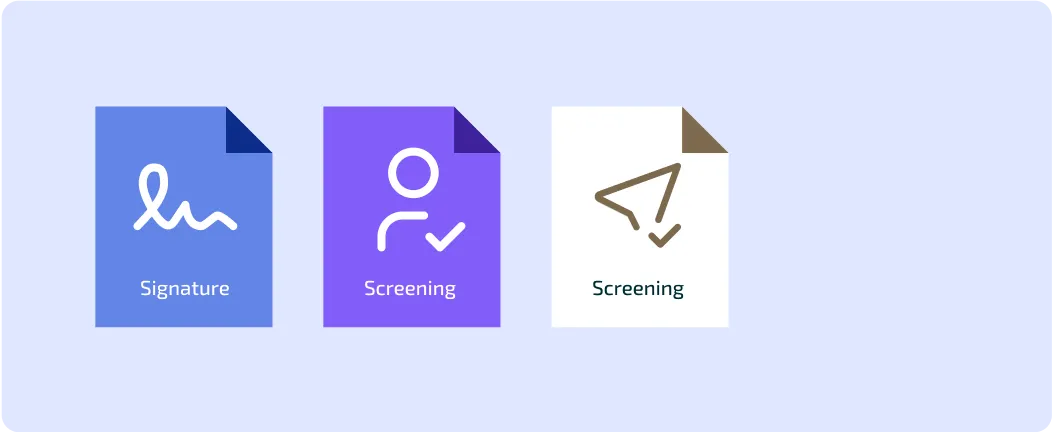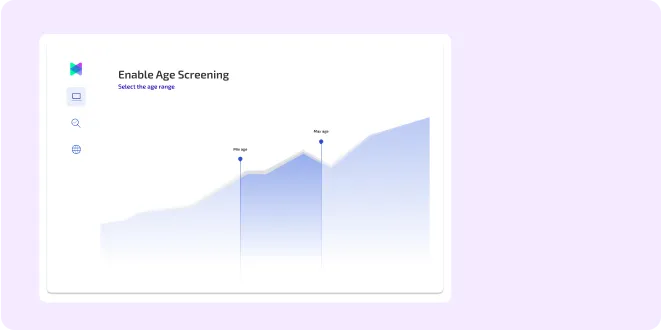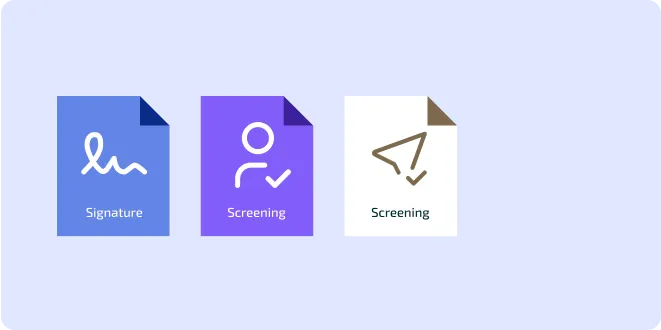.webp)
Published on
March 18, 2025
Your Guide to Chargeback Fraud: Types, Examples & Solution
In this story

Comply quickly with local/global regulations with 80% less setup time
.svg)
.svg)
Chargeback fraud is a significant problem for businesses. In 2021, it cost approximately $20 billion, according to Juniper Research. Chargebacks happen for various reasons, such as errors by the business or customer discontent.
Customers misuse chargebacks, and fraudsters exploit them, harming businesses financially and reputationally. To combat chargeback fraud, businesses must understand, reduce risks, and handle fake chargebacks promptly.
This article explores chargeback fraud, offering insights on how businesses can protect themselves. Understanding its nature, common patterns, and prevention measures is crucial. By using proactive strategies, businesses can safeguard their finances and reputation from the impacts of chargeback fraud.
Chargeback fraud is a complex challenge that requires businesses to stay informed and vigilant. By gaining insights into the common tactics used by fraudsters, businesses can develop robust defenses. This article aims to equip businesses with the knowledge and tools necessary to navigate the landscape of chargeback fraud effectively.
What is Chargeback Fraud?
Chargeback fraud, also known as friendly fraud chargebacks or liar-buyer fraud, occurs when a consumer makes a transaction dispute with their payment provider, but what this customer does is, after receiving what they paid for, they request a chargeback from the issuing bank. Once their request is approved, the chargeback cancels the financial transaction, and the consumer receives a refund of the money they spent.
Top 8 Reasons Banks Allow Chargebacks
Let's talk about why banks let customers ask for chargebacks. It's mainly to protect customers and keep trust in the financial system. Here are the top 8 reasons banks allow chargeback requests:
1. Fraudulent Transactions:
Chargebacks protect customers from fraud, like stolen credit card information or identity theft. If a customer notices a transaction they didn't authorize, they can request a chargeback to reverse the charge.
2. Goods or Services Not Received:
If you pay for something and don't get it or it's not what you expected, you can ask for your money back through chargebacks.
3. Defective or Substandard Products:
Customers have the right to dispute charges if the products they receive are defective, substandard, or not as described. Chargebacks serve as a consumer protection mechanism in such cases.
4. Billing Errors:
You can start chargebacks for billing errors like double charges, wrong amounts, or charges for things you didn't agree to.
5. Cancellation or Refund Issues:
Customers can ask for chargebacks if they're wrongly charged after canceling a subscription or service as per the terms. Chargebacks also work if the merchant doesn't give an agreed refund.
6. Identity Theft:
Chargebacks are crucial. They matter when someone steals your financial information and uses it without permission, especially in identity theft cases.
7. Merchant Violations:
Customers can request chargebacks if a merchant breaks card network rules or acts unethically. If a merchant doesn't give what they promised or tricks customers, they can ask for chargebacks.
8. Unauthorized Transactions:
If a customer sees a transaction they didn't allow, maybe from a stolen card, they can ask for a chargeback to cancel the unauthorized charge.
What are the Types of Chargeback Fraud?
Chargeback fraud happens when a customer intentionally disputes a charge to get a refund but keeps the product or service. They might say they didn't get it, it was faulty, or the transaction was unauthorized. There are different types of chargeback fraud:
1. Friendly Fraud:
This occurs when a person makes a valid purchase but later disputes it, claiming they didn't authorize it or the goods or services weren't as described. This can happen if they forget about the charge or don't recognize it on the bill.
2. Return Fraud:
This happens when someone returns an item, saying it's faulty, even if it's in good condition or has been tampered with. This often comes with a chargeback request, especially if the store's return policy is unclear.
3. Digital-Goods Chargebacks:
Digital-goods fraud is when a customer disputes a charge for a digital product, like software or an online course, after using it. This is hard for businesses to stop since the customer might have already downloaded it, but the business can't be sure.
4. Subscription Fraud:
This occurs when a customer disputes a recurring charge for a subscription service, like streaming, after getting several months of service. They might say they didn't agree to the charge or canceled the subscription but still got charged.
Comply quickly with local/global regulations with 80% less setup time
.svg)
.svg)
Legitimate Vs. Fraudulent Chargebacks
If you buy something without permission or the bill is wrong, or you're not happy with what you bought, chargebacks can happen. This is important to protect people and keep trust in the money system.
Fake chargebacks, on the other hand, occur when someone lies, saying they didn't allow a transaction or didn't get what they paid for. Banks must be fair, prevent tricks in the chargeback system, and keep the money system honest by understanding the difference.
Businesses, banks, and people need to understand why chargebacks happen and spot fake ones. This creates a safe money system where real problems are solved, and lying is discouraged.
Which Businesses can be Impacted by Chargeback Fraud?
Chargeback fraud can impact any business that takes credit card payments, no matter its size or industry. Yet, certain businesses are more prone to this type of fraud:
1. Businesses Selling High-Value Items:
Those offering expensive products or services, like luxury items or travel bookings, face a greater risk. Fraudsters may try to get these items for free by making false chargeback claims.
2. Online Retailers and Service Providers:
Businesses operating online are more susceptible to chargeback fraud. Online transactions are trickier to check than in-person ones, making it easier for fraudsters to argue and get refunds. Digital products, such as software or online courses, are particularly vulnerable.
3. Subscription-Based Businesses:
Services like streaming or subscription boxes are at a higher risk. Customers may forget or not recognize a recurring charge, causing disputes and chargeback claims. Some may even claim they never approved a subscription they've actually been using.
All businesses taking credit cards can face chargeback scams, not just specific industries. Thus, it's crucial for businesses, no matter their size or type, to be aware of this threat and take proactive steps to defend themselves. This involves using fraud-prevention tools, delivering excellent customer service, and effectively managing chargebacks.
What are the Business Consequences of Chargeback Abuse?
Chargeback scams can harm businesses in various ways. Here are the 5 most common chargeback fraud consequences:
- Financial Loss: Businesses lose money from illegitimate chargebacks.
- Increased Costs: Dealing with fraud requires extra time and resources.
- Damaged Reputation: Fraud cases can harm a business's trustworthiness.
- Strained Relationships: Frequent chargebacks may strain relationships with payment processors.
- Risk of Account Closure: Repeated fraud may lead to account closures, affecting operations.
Chargeback Fraud Prevention and Detection: Top 6 Methods
As we have mentioned before, chargeback fraud poses a threat to businesses. However, there are practical methods to guard against it. By using the methods below, companies and businesses can spot and prevent chargeback fraud effectively.
1. Transaction Monitoring:
Keep an eye on transactions for anything unusual. This means regularly checking your sales to spot anything that doesn't look right, like unexpected amounts or strange patterns.
2. Customer Verification:
Make sure customers are who they say they are. Use secure methods to confirm their identity, like sending a confirmation code to their phone when they make a purchase.
3. Clear Policies:
Have clear refund and return policies. This helps customers understand what to expect, reducing confusion and the chance of disputes.
4. Open Communication:
Keep open communication to address concerns early. Encourage customers to reach out if they have questions or issues so you can solve problems before they become chargebacks.
5. Customer Service Improvement:
Good service reduces chargeback risks. Make it easy for customers to reach you, addressing concerns and preventing chargebacks. A satisfied customer is less likely to dispute a charge.
6. Real-Time Fraud Decisions:
Fraudsters can outsmart rule-based systems, causing more chargebacks for businesses. Real-time fraud decisions stop these bad actors before payment authorization, stopping chargebacks. Use advanced technology that spots suspicious activity instantly, preventing fraudulent transactions.
Businesses need a strong risk management system for chargeback fraud prevention and detection. This includes thorough customer documentation, especially screening and KYC measures. Robust records aid in comparing disputes.
Yet, some fraud may slip by, so a dependable system for monitoring transactions is crucial. Machine learning and AI can find patterns that people might miss. With the right tools, businesses can quickly stop illegal activities.
Read more: Fraud Prevention Strategy: Why a One-Size-Fits-All Approach Fails
How can FOCAL Help?
FOCAL by Mozn uses AI to stop fraud in emerging markets. It enables businesses and financial institutions to find and prevent chargeback fraud.
1. AML Compliance Made Easy:
Adhering to Anti-Money Laundering (AML) regulations is crucial for financial institutions. FOCAL simplifies this process by providing an all-in-one AML compliance suite. The technology incorporates powerful AI and machine learning to enhance accuracy and efficiency in identifying and preventing money laundering activities. This helps businesses stay compliant with AML regulations and avoid potential legal repercussions.
2. Fraud Prevention:
Fraud is a big problem for businesses, especially in emerging markets. FOCAL's Anti-Fraud suite uses AI to find and stop fraud quickly and effectively. This helps businesses avoid money losses and keep their customers' trust.
3. Real-Time Fraud Detection:
One standout feature of FOCAL is its real-time fraud detection capabilities. Traditional rules-based systems may fall short in identifying evolving fraud tactics. FOCAL's AI technology adapts and learns continuously, enabling it to stay ahead of fraudsters. Making decisions in real-time prevents fraudulent transactions before they can lead to chargebacks, saving businesses both time and money.
FOCAL analyzes data for accurate Fraud Scores, verifying and flagging events in real-time to prioritize immediate security, ensuring your business and customers stay protected around the clock.
4. Global Merchant Network Insights:
FOCAL offers a proactive defense mechanism against fraud patterns. It identifies and blocks high-risk connections, including those from VPNs and hosting services. This gives you an edge over fraudsters and helps you stay one step ahead of potential threats.
5. Simplified Approach for Emerging Markets:
FOCAL is made for emerging markets, which have special challenges in stopping financial crime. It's designed to be simple yet powerful, with an easy-to-use interface. This makes it accessible for businesses of all sizes, helping them fight chargeback fraud in dynamic markets.
Read more: 5 Core Benefits of Automation for Financial Institutions & Compliance.
Conclusion
In conclusion, this guide gives a clear picture of chargeback fraud, helping businesses tackle this common issue. By understanding how chargeback fraud works, businesses can better defend themselves against the tricky tactics fraudsters use.
This guide also emphasizes taking action before chargeback fraud happens to avoid any chargeback fraud consequences. It suggests practical steps to chargeback fraud detection. These strategies help businesses stop chargeback fraud right at the start.
Furthermore, we talked about the importance of a global merchant network. This helps businesses see the bigger picture and predict potential chargebacks or friendly fraud cases. Preparing in advance allows businesses to act quickly and keep their finances safe.
This guide helps businesses handle chargeback fraud and build a safe financial environment. Being proactive and understanding chargeback fraud helps businesses protect themselves, gain customer trust, and thrive in the evolving financial world.
Lastly, we explored how and why FOCAL is an easy solution for businesses to fight chargeback fraud. Using AI, real-time detection, and global insights helps businesses prevent financial crimes.
Comply quickly with local/global regulations with 80% less setup time
.svg)
.svg)

How Aseel reduced onboarding time by more than 87% using FOCAL
Learn how FOCAL empowered Aseel to achieve new milestones.
.svg)
.svg)
Mastering Fraud Prevention: A Comprehensive Guide for KSA and MENA Businesses
51% of organizations fell victim to fraud in the last two years, don't be caught off guard, act proactively.
.svg)
.svg)
Featured blog posts





AI-Driven Precision in Fraud Risk and AML Compliance
.svg)
.svg)

.svg)
.png)




.svg)


.webp)


.webp)
.webp)


.svg)








%20(1).webp)
Comments
Leave a Reply
Comment policy: We love comments and appreciate the time that readers spend to share ideas and give feedback. However, all comments are manually moderated and those deemed to be spam or solely promotional will be deleted.